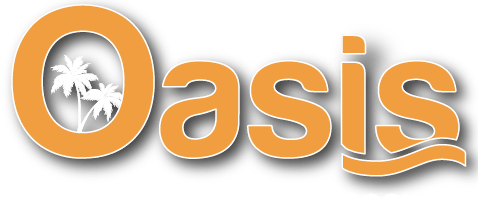Understanding Gas Line Issues in Your Elmhurst Property
Gas line problems represent some of the most critical issues homeowners and business owners face in Elmhurst, IL. When natural gas systems develop leaks, corrosion, or mechanical failures, immediate professional intervention becomes essential for safety and functionality. At Oasis Plumbing, Heating & Cooling, we’ve encountered virtually every type of gas line complication throughout our service area, from minor connector issues to major distribution line failures requiring complete system overhauls. Natural gas powers approximately 48% of Illinois homes for heating, making reliable gas line infrastructure absolutely vital for comfort and daily operations throughout the harsh Midwest winters.
The complexity of modern gas line systems extends far beyond simple pipe connections. Today’s installations involve sophisticated pressure regulation equipment, automatic shutoff valves, seismic safety devices, and multiple fail-safe mechanisms designed to prevent dangerous situations. Our technicians regularly service properties ranging from century-old Elmhurst homes with aging steel pipes to new commercial developments featuring advanced polyethylene distribution systems. Each property presents unique challenges based on soil conditions, building foundations, utility configurations, and local code requirements that have evolved significantly over the decades.
Common Gas Line Problems We Repair
Throughout our years serving Chicago and the Northern Suburbs for over 20 years, we’ve identified several recurring gas line issues that affect Elmhurst properties. Corrosion remains the leading cause of gas line failures, particularly in older steel pipes exposed to moisture and soil chemicals. This deterioration typically begins at threaded connections and gradually spreads along the pipe surface, creating microscopic perforations that allow gas to escape. We utilize specialized electronic detection equipment capable of identifying leaks as small as one part per million, ensuring even the smallest compromise in system integrity gets addressed before escalation.
Physical damage from construction activities, tree root intrusion, and ground settlement accounts for another significant portion of repair calls we receive. Elmhurst’s mature tree canopy, while beautiful, often means extensive root systems that can shift underground utilities over time. Additionally, extreme temperature fluctuations common to northern Illinois cause soil expansion and contraction cycles that stress buried gas lines. Our repair protocols involve not just fixing the immediate problem but also implementing preventive measures such as protective sleeving, proper bedding materials, and strategic rerouting to minimize future vulnerability.
Our Comprehensive Repair Process
When responding to gas line repair needs in Elmhurst, we follow a systematic approach developed through decades of experience since 1997, when Oasis Plumbing, Heating & Cooling & Cooling began delivering quality customer service, reliability, and expertise in heating, cooling, and ventilation to our residential and commercial clients. Initial assessment begins with atmospheric testing using calibrated combustible gas indicators to map the extent and concentration of any leaks. We document pressure readings at multiple points throughout the system, comparing actual performance against manufacturer specifications and local utility standards.
Following detection and diagnosis, our repair methodology varies based on specific circumstances. Minor leaks at accessible fittings might require simple tightening or sealant application, while major line failures demand excavation and replacement. We maintain extensive inventories of both traditional black iron and modern corrugated stainless steel tubing materials, allowing immediate repairs without delays for parts procurement. Our highly-trained technicians, and responsive support staff, offer customized solutions to fit your budget while ensuring all work meets or exceeds the stringent requirements established by the Illinois Commerce Commission and local Elmhurst building codes.
Safety Protocols and Emergency Response
Gas line emergencies demand immediate, decisive action to protect life and property. We maintain 24-hour emergency response capabilities specifically for situations where gas odors, hissing sounds, or visible damage indicate active leaks. Upon arrival, our technicians immediately establish safety perimeters, shut off gas supplies at appropriate isolation points, and ventilate affected areas to prevent accumulation of explosive concentrations. We coordinate closely with Nicor Gas and local fire departments when situations warrant additional resources or evacuation procedures.
Prevention remains equally important in our service philosophy. We recommend annual inspections for commercial properties and biennial checks for residential systems, during which we perform comprehensive evaluations including:
- Pressure testing: Verifying system integrity under controlled conditions exceeding normal operating parameters
- Connector inspection: Examining flexible connectors for wear, corrosion, or improper installation
- Valve operation: Testing all shutoff valves for proper function and accessibility
- Appliance connections: Ensuring proper sizing and secure attachment at all equipment termination points
- Ventilation assessment: Confirming adequate combustion air supply and exhaust pathways
Technology and Equipment Used in Repairs
Modern gas line repair requires sophisticated diagnostic and repair equipment far beyond traditional soap bubble tests. We employ thermal imaging cameras that detect temperature variations indicating gas leaks invisible to conventional methods. Ultrasonic leak detectors pick up high-frequency sounds produced by escaping gas, enabling precise location identification without excavation. For underground lines, we utilize electromagnetic locating equipment and ground-penetrating radar to map existing infrastructure before any digging begins, preventing accidental damage to other utilities.
Repair techniques have evolved considerably with technological advancement. Trenchless repair methods now allow us to address certain underground problems without extensive excavation, preserving landscaping and reducing restoration costs. Pipe relining technologies enable rehabilitation of deteriorated lines by installing new liners within existing pipes, effectively creating new gas lines without complete replacement. These innovations significantly reduce repair timeframes and minimize property disruption while maintaining safety standards required for gas service restoration.
Regulatory Compliance and Code Requirements
Elmhurst gas line repairs must comply with multiple regulatory frameworks governing installation, materials, and testing procedures. The International Fuel Gas Code, adopted by Illinois with local amendments, establishes minimum standards for gas piping systems. DuPage County enforces additional requirements specific to our region’s geological and climate conditions. We maintain current certifications and stay informed about code updates through continuing education programs and industry associations.
Proper permitting ensures repairs receive appropriate oversight and documentation for property records. We handle permit applications, coordinate required inspections, and provide detailed documentation for property owners’ records. This comprehensive approach protects property values and ensures smooth transactions during future property sales. Our commitment extends beyond mere compliance, as we consistently implement best practices that exceed minimum requirements, providing additional safety margins and system longevity for every repair we complete in the Elmhurst community.










